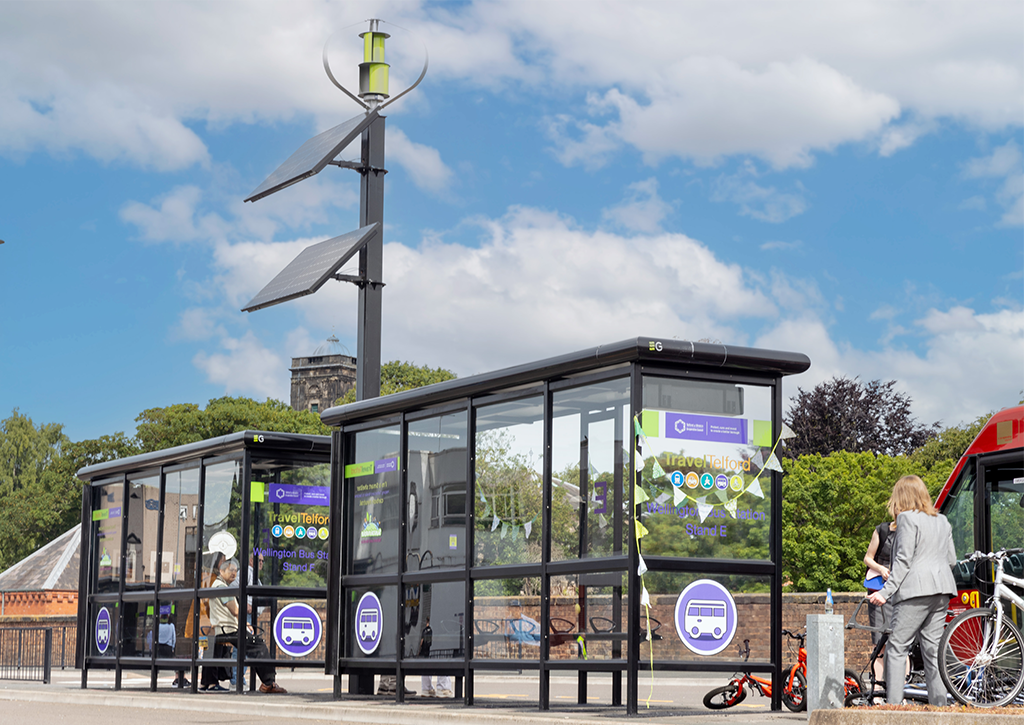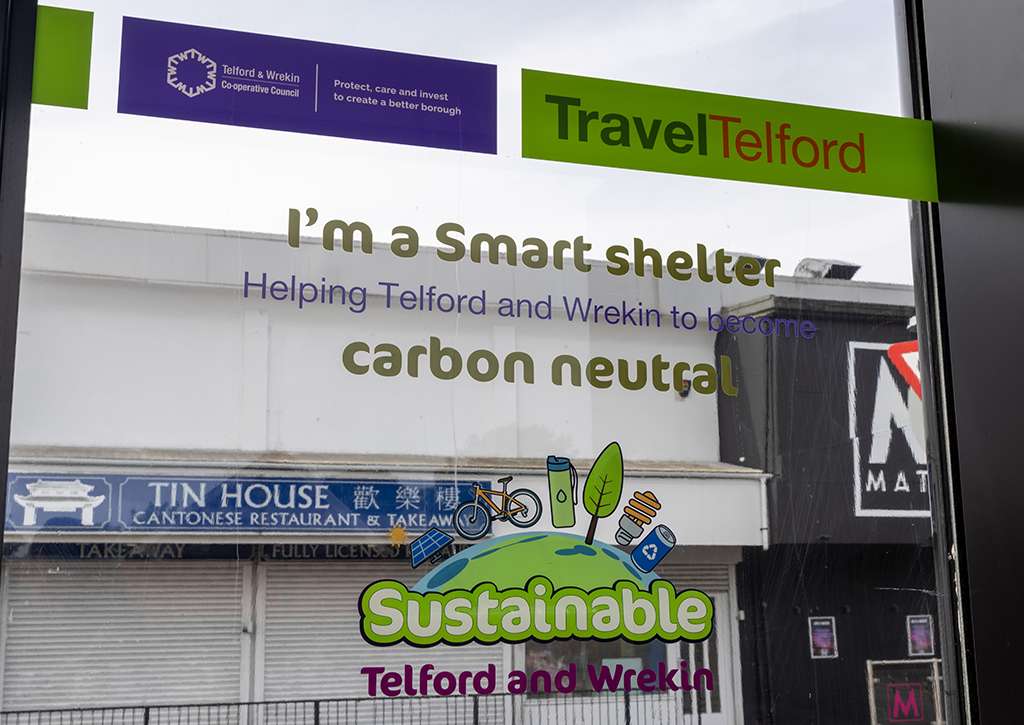Telford & Wrekin Council opened the UK’s first bus station to generate its own electricity, in a bid to further reduce the carbon footprint of the borough and meet an ambitious target for net zero by 2030.
Energy available day and night will be harnessed, with each individual shelter generating approximately 820 kilowatt-hours a year, enough electricity to supply a house for three months. This energy will power the lighting, CCTV and live timetable information boards in the shelters.

Every shelter is constructed using hundreds of recycled plastic bottles. The shelter roofs are also put to work thanks to a low-growing plant called ‘sedum’, giving back to nature with pockets of urban wilderness, providing a home for insects and bees and absorbing carbon.
Over the lifespan of the bus station, carbon savings of 55 metric tons will be achieved, the same as planting more than 750 new trees.

It’s not just energy saving measures that have been incorporated into the station; the passenger information technology includes improved accessibility and security features such as voice and push button announcements and CCTV cameras built into the digital screens .
Councillor Carolyn Healy (Labour), Cabinet Member for Climate Change, Green Spaces, Natural and Historic Environment and Cultural Services said: “The bus shelters are another step forward in our green journey to help tackle the climate emergency.
“We are pioneering the installation of smart shelters powered by solar panels and micro wind turbine technology and were one of the first in the region to welcome bus stops with living roofs – clear examples of how we’re actively embedding renewable technology and bringing it to life – helping improve the borough’s climate, biodiversity and air quality.
“The work continues well into the future as for every micro turbine installed, our contractor Etesian Green will plant 10 trees.”
Technical director Ben Fagg at Etesian Green said: “Etesian Green is a collaboration of companies formed to deliver next generation renewable solutions to the ‘out of home’ and outdoor network environments. Our vision is to accelerate the UK’s clean energy transition through the use of our innovative wind & solar technologies at a local level.
“We envision bus shelters & stations, streets, car parks, coastlines, business parks, city centres, remote and residential areas all benefiting from its service. With the ability to be on and off grid we are looking to support EV charging schemes and in partnership with Journeo also seeking to provide key statistical data on energy savings, air quality, wind speeds and temperatures.
“We stand on the threshold of a new, greener, and more resilient era. Together we hold extraordinary power in our hands.”
A further £250,000 is being invested over the next two years with more eco bus shelters being rolled out in support of the council’s bid to make the borough cleaner, greener and safer.